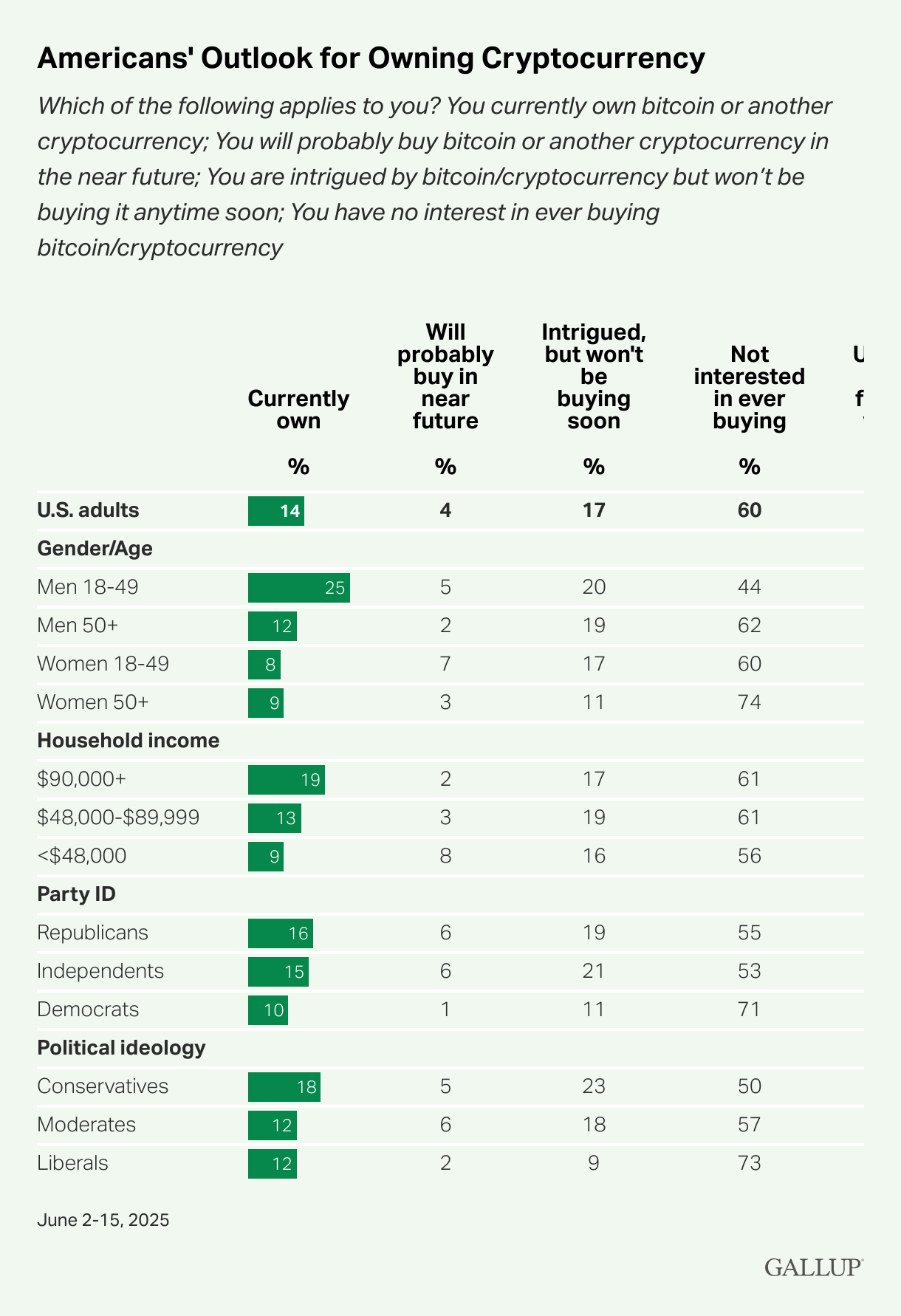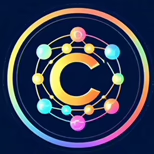Despite the increased adoption since 2021, cryptocurrency is still difficult to sell for most Americans. The new Gallup data reveal a marked division: while 14% of American adults have cryptography, 60% have zero interest. Even when regulation takes shape, distrust is deep.
Summary
- The Gallup survey shows that only 14% of American adults have cryptography, while 60% have no interest.
- Adoption is strongly leaning towards young men, university graduates and conservatives of higher income.
- Genius law can shape regulation, but trust and utility gaps continue to stop adoption.
A ballup survey The realization of June 2 to 15 discovered that the property of cryptocurrencies in the USA.
The numbers reflect a stubborn reality: despite Bitcoin’s pricing recovery, high -profile ETF approvals and Washington’s impulse for clearer rules, most Americans still see digital assets as speculative in the best case, reckless in the worst.
The data, collected just before President Trump signed the bipartisan genius law, emphasizes how the perception of risk eclipses Crypto’s growth potential.
The demography of distrust: who believes in cryptography and who does not
Gallup findings show that Crypto’s adoption is divided abruptly along the age and gender lines. A quarter of men under 50 own digital assets compared to only 8% of women of the same age, and the gap grows with greater generations.

Source: Gallup
The numbers suggest more than just property differences; They reveal fundamental gaps in access and trust. Young men, constantly bombarded by cryptographic ads and full of technological circles, have three times more likely than their companions to maintain cryptocurrency. At the other end of the spectrum, only 7% of the elderly have taken the step.
According to the report, Crypto’s appeal is still linked to demography instead of universal utility. 19% of university graduates and high winners are almost twice as probabilities to have cryptography such as 9% of low -income Americans. Political identity also plays a role: 18% of conservatives have digital assets, compared to only 11% of liberals. These divisions hint a cultural division, one in which cryptography thrives between groups already inclined towards financial risks, while others remain skeptical or disconnected.
The knowledge gap
Gallup researchers said that 95% of American adults recognize the term “cryptocurrency”, but only 35% claims a real understanding of it. For 60%, it is little more than a fashion word; A concept they have found but cannot explain. This problem of consciousness without competence is especially pronounced between women and older adults. While 59% of men under 50 say they include basic cryptography concepts, only 22% of women over 50 do it.
The most surprising finding of the survey is that risk aversion transcends knowledge. It doesn’t matter if Americans say they receive cryptography or not; 87% still see it as risky, and more than half call it “very risky.” Even experienced investors, which are generally condemned with more risk, remain cautious: almost two thirds consider that highly speculative cryptography, showing little change since 2021.
The numbers paint a divided image. While younger and rich men see cryptography as their high -risk commitment, all others do not want part of it or remain firmly in the fence over their place in their financial lives.
Regulation, such as genius law, could legitimize cryptography for skeptics. But Gallup data suggests that the rules alone will not be enough. Until digital assets show their reputation as a casino for technological brothers and demonstrate their power of permanence, the main America will probably maintain its distance.




